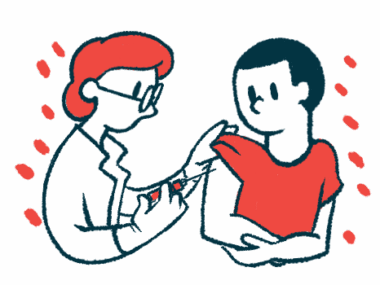The Importance of Staying Aware So That Rare Doesn’t Surprise You
As a caregiver, a columnist learns she must prepare for the unexpected
Written by |

Before Blu-ray players in car consoles, satellite radios, or small screens synced to wireless headphones, families found ways to entertain themselves when faced with long road trips.
Growing up, our family of four didn’t go on many road trips, but when we did, my parents picked some doozies. Eighteen hours to Boston, 12 hours to Florida, and 16 hours to Washington, D.C., were some of the most memorable ones. And on each trip, after the music ran out, between bathroom breaks, rest stops, and meals, we would play the game “Spot Your Car.”
The rules were to pick a color, and every time you spotted a car of that color, you called it out and received a point. If someone else called out your vehicle, you lost a point. The undefeated champion of the game? My father! And the individual guaranteed to lose? Adolescent me. No matter how hard I tried, I never earned a single point.
It took years for me to discover the reason behind my father’s victories. Daddy would always pick red, black, or white against my orange, electric blue, or purple. Unfortunately, 8- or 9-year-old me didn’t realize that in the 1980s, you were less likely to find the colors I always chose driving down the highway.
After a particularly crippling defeat on one road trip, I sulked in the back seat and eventually closed my eyes to rest. Then, suddenly, my mom yelled my name, causing me to sit up at full attention.
“You missed it!” she exclaimed. “You missed your car!”
Sure enough, when I turned around to look out the rear window, I saw the rare color I had picked racing away. So not only did I lose the point, but I also missed the rare-colored car, simply because I stopped looking for it.
A reminder to stay vigilant
When our oldest daughter, whom we refer to as Ladybug, was diagnosed with hereditary angioedema (HAE) last year, my husband and I were pretty familiar with the common symptoms. Her facial swells usually alerted us to her flares. The tiniest hint of her telltale puffy lips, cheeks, or swollen eyelids would immediately have me ready to administer her emergency meds or head to the hospital if she needed more care.
Did I know there were other symptoms? Sure. But other than the one laryngeal flare she experienced a few years prior, I had become so used to seeing the same signs repeatedly that I stopped looking for new, rarer ones.
“Can you open the Tylenol for me?” Ladybug asked when she came into my room one evening.
I was immediately confused. The bottle didn’t have a childproof top. In fact, because all our kids are old enough to understand the medicine bottles and their contents, none of the over-the-counter pain relief medications had childproof tops.
“You can’t open it?” I asked.
She shook her head no. When I reached for the bottle and accidentally grabbed her hand, she winced in pain. It was her hands! She couldn’t open the pill bottle because her hands were swollen.
While I administered Berinert later that night, I couldn’t believe I had missed this symptom. I had become so used to seeing the changes in her face that I never thought of checking her hands, feet, or belly.
Since then, I’ve learned my lesson. I’ve become hyperaware of Ladybug struggling to open bottles or properly hold cups. I’m on high alert when she talks about her shoes being too tight or has difficulty buttoning her pants. When it comes to HAE, I realized that I must be aware of all the symptoms, not just the ones I see all the time.
As caregivers, we can become so consumed with common challenges that it can cause us to miss when those we love face more uncommon ones. Sometimes, we must continue to pay attention to spot the orange car.
Note: Angioedema News is strictly a news and information website about the disease. It does not provide medical advice, diagnosis, or treatment. This content is not intended to be a substitute for professional medical advice, diagnosis, or treatment. Always seek the advice of your physician or other qualified health provider with any questions you may have regarding a medical condition. Never disregard professional medical advice or delay in seeking it because of something you have read on this website. The opinions expressed in this column are not those of Angioedema News or its parent company, Bionews, and are intended to spark discussion about issues pertaining to angioedema.




Leave a comment
Fill in the required fields to post. Your email address will not be published.